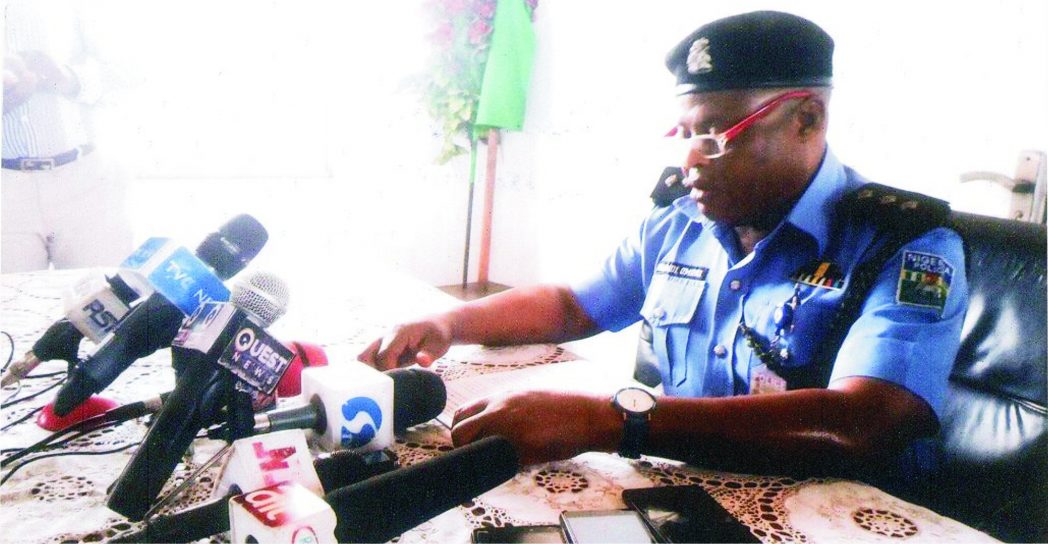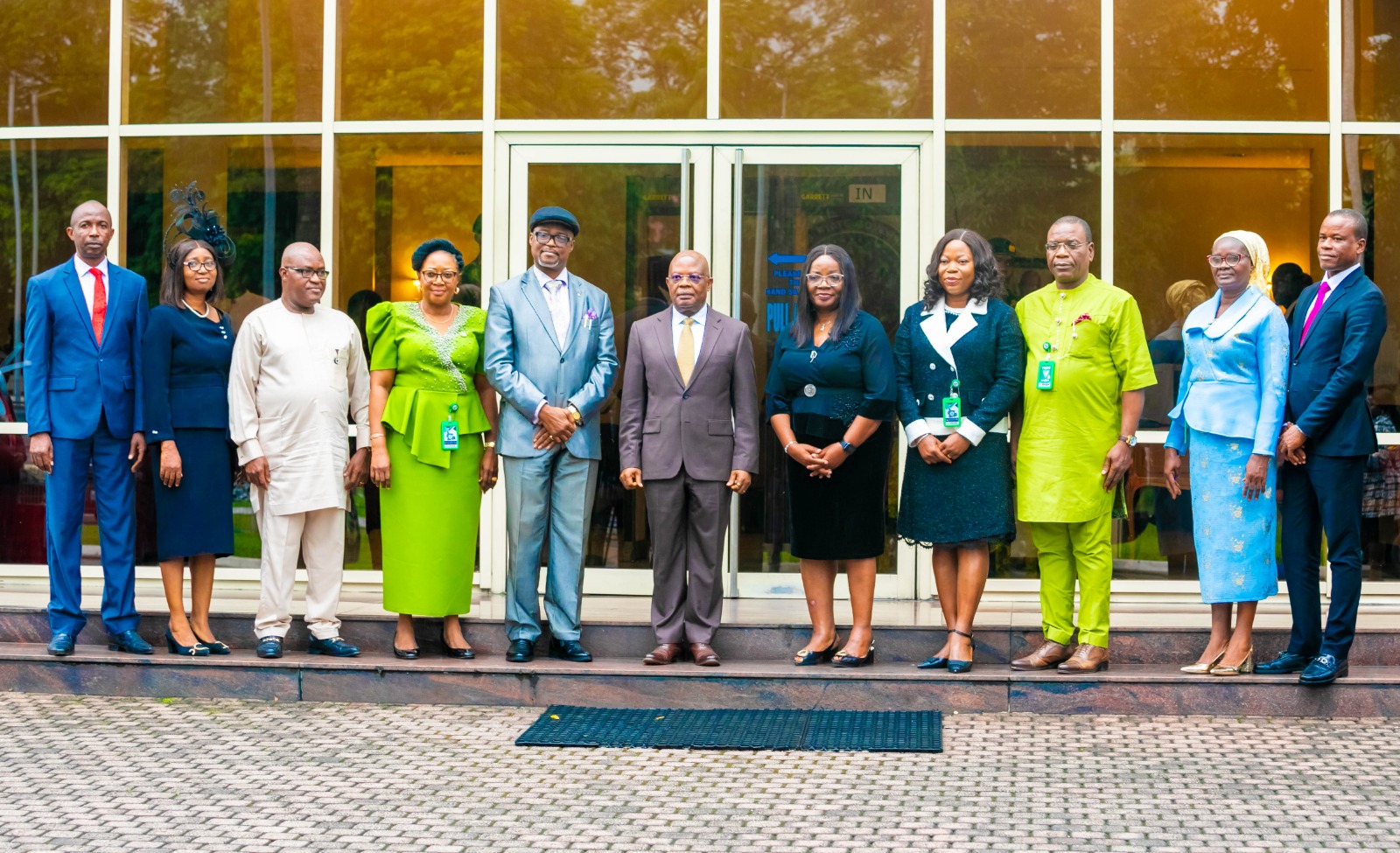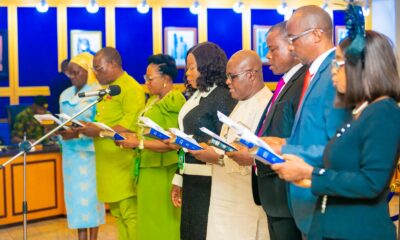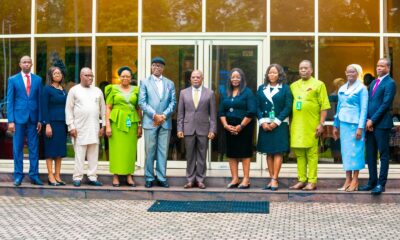Featured
Rivers Police Burst Baby Factory In PH …Rescue 24 Children, Four Pregnant Teenagers

The Rivers State Police Command has burst another baby factory in the Woji axis of Obio/Akpor Local Government Area and arrested the alleged child trafficking syndicate in the state.
The police command also rescued 24 babies and four pregnant teenage girls from the facility.
Disclosing this to newsmen, yesterday, at the state Police Command Headquarters in Port Harcourt, the Police Public Relations Officer, DSP Nnamdi Omoni, said the baby factory was burst by men of the Eagle Crack Squad who acted on credible information.
Omoni, who said that the four female teenagers were found in the baby factory, explained that the E-Crack team had recorded the feat by rescuing the 24 babies aged 1-2 years old, last Tuesday.
According to Omoni, “Today, I am glad to inform you that operatives of the Eagle Crack in a covert operation, yesterday (25/2/2020) at about 1530hrs, burst a child trafficking syndicate at Woji in Port Harcourt, where 24 babies between the ages of 1 and 2 years and four pregnant teenagers were recovered.
“The babies and the pregnant teenagers, who are frail and malnourished, are currently receiving medical attention at the Police Clinic, while investigation is still on with a view to making more recoveries and bringing the masterminds to justice.
“The command is hereby appealing to the public, particularly residents of the state whose babies are missing to come forward for identification and collection.
“They are also enjoined to increase their security consciousness by reporting any suspicious movement around them to the nearest police station, via the following security numbers.
“The Commissioner of Police, CP Mustapha Dandaura, wishes to appeal to the public to continue to have faith in the command, as he is poised to sustain the existing peace in the state and will continue to remain professional and focused in the discharge of his constitutional responsibilities, while strongly soliciting for your support and cooperation”, Omoni added.
On the issue of late mechanic, Chima Ikwunado, and four others popularly known as the ‘Ikoku Four’, Omoni, who confirmed that the autopsy report had been submitted, quickly added that the state commissioner of police, will address the public once investigations are concluded.
He also said the police command has launched investigation into the alleged killing of a bureau de change operator in the GRA area of Port Harcourt with the view unravelling the identities of those behind the incident.
In her remarks, counsel to the Founder of the alleged child trafficking syndicate, Tender Life Foundation Initiative, Barrister Eunice Onyema Uchendu, denied that the organisation was a baby factory, arguing that there was nothing illegal about the organisation’s operations.
Responding to questions at the police headquarters during the briefing, particularly on the police allegation against the facility and its founder, Uchendu clarified that the organization was dully licensed by the Rivers State Ministry of Social Welfare and Rehabilitation to undertake the business as a holding facility in the state.
According to her, “the organization is not a baby factory but a transition home where parents give their children for rehabilitation”.
Also speaking, the Programme Officer of the home, Mr. Oniche Richard, explained that the home was licensed to cater for destitute children from four local government areas of the state, which include, Andoni, Etche, Gokana and Tai local government areas.
He emphasised that the home targets orphans and vulnerable children affected by HIV/AIDS, and discountenance claims by the police that the facility was an illegal entity.
Featured
Rivers A Strategic Hub for Nigeria’s Blue Economy -Ibas …Calls For Innovation-Driven Solutions

The Administrator of Rivers State, Vice Admiral (Rtd.) Ibok-Ete Ibas, has emphasized the need for innovation-driven strategies, strategic partnerships, and firm policy implementation to fully harness the vast potential of the blue economy.
Speaking during a courtesy visit by participants of Study Group 7 of the Executive Course 47 from the National Institute for Policy and Strategic Studies (NIPSS) at Government House, Port Harcourt, on Monday, Ibas highlighted the importance of diversifying Nigeria’s economy beyond oil by leveraging maritime resources to create jobs, enhance food security, strengthen climate resilience, and generate sustainable revenue.
The Administrator, according to a statement by his Senior Special Adviser on Media, Hector Igbikiowubo, noted that with coordinated efforts and innovative solutions, the blue economy could serve as a catalyst for inclusive growth, economic stability, and long-term environmental sustainability.
“It is estimated that a fully developed blue economy could generate over $296 million annually for Nigeria, spanning fisheries, shipping and logistics, marine tourism, offshore renewable energy, aquaculture, biotechnology, and coastal infrastructure,” he stated.
“We must transition from extractive practices to regenerative, inclusive, and innovation-driven solutions. This requires political cohesion, intergovernmental collaboration, robust infrastructure, and institutional capacity—all of which must be pursued with urgency and intentionality,” he added.
Ibas urged sub-national governments, particularly coastal states, to domesticate the national blue economy framework and develop tailored strategies that reflect their comparative advantages.
He stressed that such efforts must be guided by disciplined planning, regulation, and investment to maximize the sector’s potential.
Highlighting Rivers State’s pivotal role, the Administrator outlined its strategic advantages as follows:
•Nearly 30% of Nigeria’s total coastline (approximately 853km)
•Over 40% of Nigeria’s crude oil and gas output
•More than 33% of the country’s GDP and foreign exchange earnings
•416 of Nigeria’s 1,201 oil wells, many located in marine environments
•Two of Nigeria’s largest seaports, two oil refineries, and the Nigerian Liquefied Natural Gas (NLNG) terminal in Bonny Island—one of Africa’s most advanced gas facilities
Despite these opportunities, Ibas acknowledged challenges such as pollution, coastal erosion, illegal oil refining, unregulated fishing, inadequate infrastructure, and maritime insecurity.
He reaffirmed his administration’s commitment to institutional reforms, coastal zone management, and inter-agency collaboration to build a governance structure that supports a sustainable blue economy.
“Sustainability must be embedded in our development models from the outset, not as an afterthought. We are actively exploring partnerships in maritime education, aquaculture development, port modernization, and renewable ocean energy. We welcome knowledge-sharing engagements like this to refine our strategies and enhance implementation,” he said.
He urged the NIPSS delegation to ensure their findings translate into actionable recommendations that address the sector’s challenges.
Leader of the delegation, Vice Admiral A.A. Mustapha, explained that the visit aligns with their strategic institutional tour mandate on the 2025 theme: “Blue Economy and Sustainable Development in Nigeria: Issues, Challenges, and Opportunities.”
The group is engaging stakeholders to deepen understanding of policy efforts and institutional roles in advancing sustainable development through the blue economy.
Featured
INEC To Unveil New Party Registration Portal As Applications Hit 129

The Independent National Electoral Commission (INEC) has announced that it has now received a total of 129 applications from associations seeking registration as political parties.
The update was provided during the commission’s regular weekly meeting held in Abuja, yesterday.
According to a statement signed by the National Commissioner and Chairman of the Information and Voter Education Committee, Sam Olumekun, seven new applications were submitted within the past week, adding to the previous number.
“At its regular weekly meeting held today, Thursday 10th July 2025, the commission received a further update on additional requests from associations seeking registration as political parties.
“Since last week, seven more applications have been received, bringing the total number so far to 129. All the requests are being processed,” the commission stated.
The commission revealed the introduction of a new digital platform for political party registration. The platform is part of the Party Financial Reporting and Auditing System and aims to streamline the registration process.
Olumekun disclosed that final testing of the portal would be completed within the next week.
“INEC also plans to release comprehensive guidelines to help associations file their applications using the new system.
“Unlike the manual method used in previous registration, the Commission is introducing a political party registration portal, which is a module in our Party Financial Reporting and Auditing System.
“This will make the process faster and seamless. In the next week, the commission will conclude the final testing of the portal before deployment.
“Thereafter, the next step for associations that meet the requirements to proceed to the application stage will be announced. The commission will also issue guidelines to facilitate the filing of applications using the PFRAS,” the statement added.
In the meantime, the list of new associations that have submitted applications has been made available to the public on INEC’s website and other official platforms.
Featured
Tinubu Signs Four Tax Reform Bills Into Law …Says Nigeria Open For Business

President Bola Tinubu yesterday signed into law four tax reform bills aimed at transforming Nigeria’s fiscal and revenue framework.
The four bills include: the Nigeria Tax Bill, the Nigeria Tax Administration Bill, the Nigeria Revenue Service (Establishment) Bill, and the Joint Revenue Board (Establishment) Bill.
They were passed by the National Assembly after months of consultations with various interest groups and stakeholders.
The ceremony took place at the Presidential Villa, yesterday.
The ceremony was witnessed by the leadership of the National Assembly and some legislators, governors, ministers, and aides of the President.
The presidency had earlier stated that the laws would transform tax administration in the country, increase revenue generation, improve the business environment, and give a boost to domestic and foreign investments.
“When the new tax laws become operational, they are expected to significantly transform tax administration in the country, leading to increased revenue generation, improved business environment, and a boost in domestic and foreign investments,” Special Adviser to the President on Media, Bayo Onanuga said on Wednesday.
Before the signing of the four bills, President Tinubu had earlier yesterday, said the tax reform bills will reset Nigeria’s economic trajectory and simplify its complex fiscal landscape.
Announcing the development via his official X handle, yesterday, the President declared, “In a few hours, I will sign four landmark tax reform bills into law, ushering in a bold new era of economic governance in our country.”
Tinubu made a call to investors and citizens alike, saying, “Let the world know that Nigeria is open for business, and this time, everyone has a fair shot.”
He described the bills as not just technical adjustments but a direct intervention to ease burdens on struggling Nigerians.
“These reforms go beyond streamlining tax codes. They deliver the first major, pro-people tax cuts in a generation, targeted relief for low-income earners, small businesses, and families working hard to make ends meet,” Tinubu wrote.
According to the President, “They will unify our fragmented tax system, eliminate wasteful duplications, cut red tape, restore investor confidence, and entrench transparency and coordination at every level.”
He added that the long-standing burden of Nigeria’s tax structure had unfairly weighed down the vulnerable while enabling inefficiency.
The tax reforms, first introduced in October 2024, were part of Tinubu’s post-subsidy-removal recovery plan, aimed at expanding revenue without stifling productivity.
However, the bills faced turbulence at the National Assembly and amongst some state governors who rejected its passing in 2024.
At the NASS, the bills sparked heated debate, particularly around the revenue-sharing structure, which governors from the North opposed.
They warned that a shift toward derivation-based allocations, especially with VAT, could tilt fiscal balance in favour of southern states with stronger consumption bases.
After prolonged dialogue, the VAT rate remained at 7.5 per cent, and a new exemption was introduced to shield minimum wage earners from personal income tax.
By May 2025, the National Assembly passed the harmonised versions with broad support, driven in part by pressure from economic stakeholders and international observers who welcomed the clarity and efficiency the reforms promised.
In his tweet, Tinubu stressed that this is just the beginning of Nigeria’s tax evolution.
“We are laying the foundation for a tax regime that is fair, transparent, and fit for a modern, ambitious Nigeria.
“A tax regime that rewards enterprise, protects the vulnerable, and mobilises revenue without punishing productivity,” he stated.
He further acknowledged the contributions of the Presidential Fiscal Policy and Tax Reform Committee, the National Assembly, and Nigeria’s subnational governments.
The President added, “We are not just signing tax bills but rewriting the social contract.
“We are not there yet, but we are firmly on the road.”
-
Rivers22 hours ago
Monarch Cautions Youths Against Illicit Drug Consumption
-

 News21 hours ago
News21 hours agoNIMASA Shuts Two Lagos Terminals Over Security Breach
-
Opinion1 day ago
Why Reduce Cut-Off Mark for C.O.E ?
-
Politics23 hours ago
Alleged Money Laundering: Fayose Has No Case To Answer, Court Tells EFCC
-

 Politics18 hours ago
Politics18 hours agoAtiku Quits PDP, Says Decision Heartbreaking
-
Rivers22 hours ago
CDS Urges Communities To Protect Pipelines
-

 News21 hours ago
News21 hours agoShettima, Atiku, Obi Attend Buhari’s Fidau Prayer In Daura
-
Politics24 hours ago
Atiku’s Exit No Problem To PDP – Makinde









